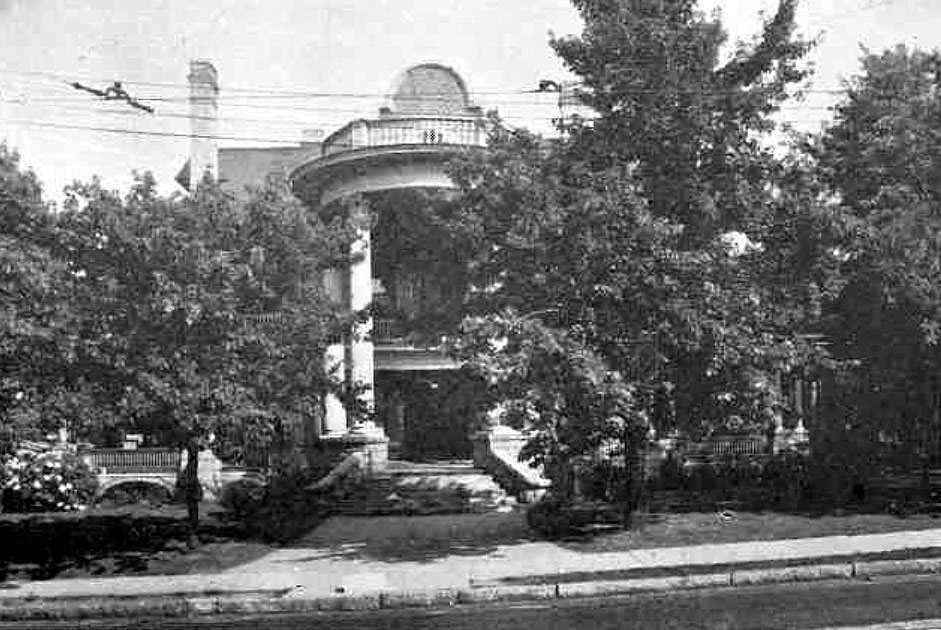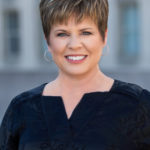Historical Highlights
In 19th-century America, the expectation of women was to tend to the domestic duties of the home while the men were away at work. But in time, after suffragists first rallied in1848, women began to slowly stake their ground outside the home. Many created women-only clubs where professional and non-professional women gathered to socialize, network, and educate themselves. The first women’s only club formed in 1868 and consisted primarily of NYC women writers – Sorosis (from the Latin word sorror, meaning “sister”). As times progressed, women’s clubs began emerging all across the country. In 1890, 63 separate women’s clubs came together to officially form the General Federation of Women’s Clubs (GFWC), dedicated to community improvement through civic engagement, fundraising, and volunteer service.
On May 27, 1902, the North Carolina Federation of GFWC was founded at Salem College in Winston-Salem. Seven clubs formed the nucleus of GFWC-NC, three of which resided in Winston-Salem: Sorosis, Round Table, and Embroidery. As the country’s oldest, female-only educational institution in the United States, it was the perfect choice. Twelve years later, under the leadership of Mrs. (Katharine) Howard Rondthaler, the Woman’s Club of Winston Salem (WCWS) was established and doubled its membership from 160 to 321 in the first two years. Interest in joining WCWS continued to soar as evidenced by the headline in the Winston-Salem Sentinel “How Can One Get Membership in the Woman’s Club?” and by 1923 membership reached its peak at 555.
In 1924, the decision was made to purchase the “Cicero Tise House” for $67,500 to serve as the headquarters of the WCWS. Sadly, the economic boom of the Roaring Twenties rapidly gave way to one of the darkest eras in America’s history. Not only did WCWS have to relinquish the national and state federation memberships, but the clubhouse loan proved to be more than active members could carry, too. Thanks to the generosity of 21 community members, the debt was reduced from $23,700 to $6,000 in 1935 and the deed of title was transferred to the Winston-Salem Foundation.
The economic growth of the post-war economy allowed WCWS to once again take up membership in the GFWC-NC and GFWC, as well as make the final payment on the Woman’s Clubhouse in 1945. Decades passed, times changed, and membership dropped to the point that WCWS could no longer meet the necessary expenses of keeping up the clubhouse. In 2000, WCWS made the decision to turn the house over to the Winston-Salem Foundation and they made the decision to sell it; allowing the WCWS to use the interest on the money to give to non-profit organizations…in keeping with WCWS’s objective “to promote and encourage education, literature, the sciences and arts.”
Promoting Education and Area Nonprofit Organizations
Early on (1907) GFCW began awarding scholarships and in 1956, GFWC-NC established a permanent scholarship fund. One such scholarship was the Lucy Bramlette Patterson Award for Excellence in Creative Writing (established in 2002). This annual scholarship is given in memory of Mrs. J. Lindsay Patterson of Winston-Salem, the first President of GFWC-NC (1902-1905) and a former Winston-Salem Sentinel columnist whose themes centered on women’s rights and opportunities. How fitting! That same year, a historical highway marker commemorating the centennial of GFWC-NC was erected near Salem College which reads: Volunteer service group promoted suffrage, education, and other social, cultural changes.
GFWC-NC is the “oldest, largest, charitable, service organization of women in North Carolina” so it is no surprise that the members of WCWS, under the leadership of President, Mrs. Phebe Kirkman (2002 – present) voted to use accruing interest from the sale of the clubhouse to establish their first endowed scholarship. The historical significance of Salem College in the formation of GFWC-NC made it the logical choice. 2011 marked the 92nd year of WCWS and the completion of a most ambitious project – $100,000 commitment to Salem College. The following year, a second endowed scholarship was established at Forsyth Technical Community College and by 2021, WCWS had impressively met that financial goal. Additionally, the WCWS contributes yearly to the scholarship fund at UNCSA and supports many important projects in the community such as the Forsyth Public Library, WS Rescue Mission, and Boys and Girls Home of NC. Each month WCWS hosts a luncheon speaker from an area non-profit organization (e.g. Second Harvest Food Bank, Winston-Salem Salvation Army, and Dress for Success) and gives an honorarium to a non-profit of the recipient’s choosing.
“The Union of All for the Good of All”
(motto adopted 1913, GFWC-NC)



















